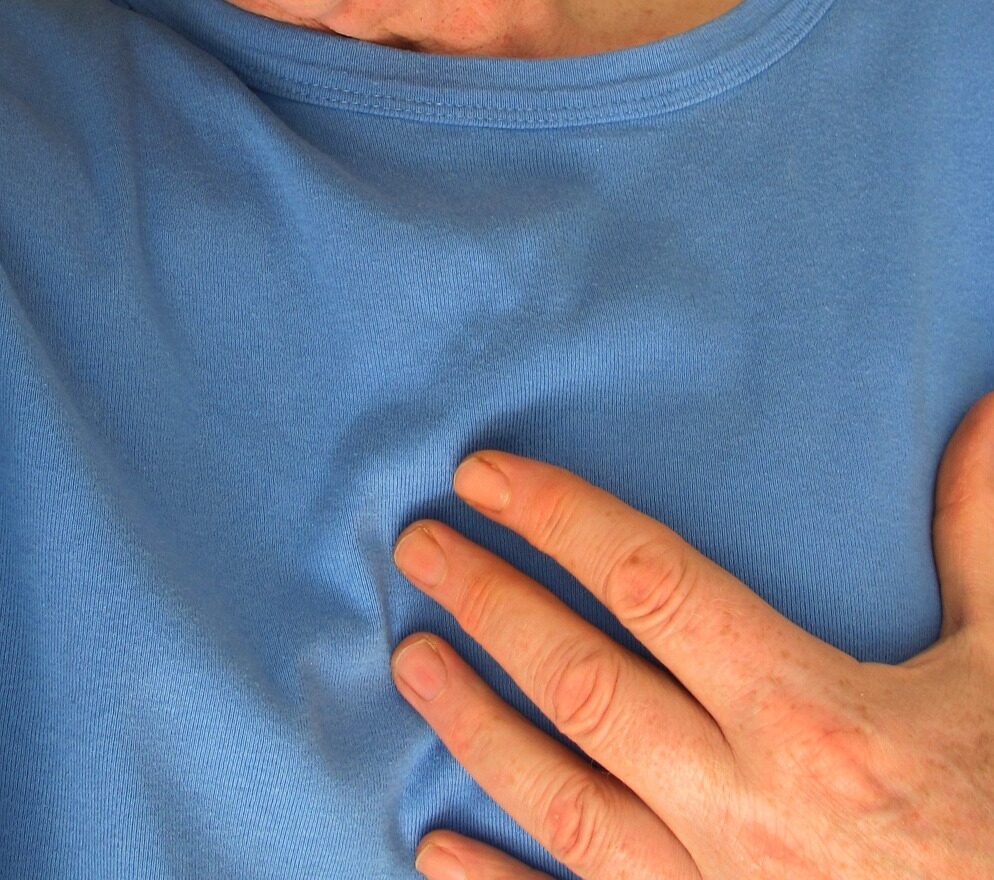Learn the crucial heart attack warning signs and how to respond swiftly. Protect your health by recognizing symptoms early. Expert advice on heart attack signs.
Table of Contents
Heart Attack Warning Signs: Recognizing Symptoms and Taking Action
A heart attack is a serious medical emergency that requires swift action. Knowing the warning signs and understanding how to respond can make all the difference in saving a life. In this article, we’ll delve into the key symptoms of a heart attack and provide essential guidance on how to react promptly. Follow Us
1. Chest Discomfort
One of the most common warning signs of a heart attack is chest discomfort. This may manifest as pressure, tightness, or pain in the chest that lasts for a few minutes or comes and goes. It’s essential not to ignore this symptom and to seek medical help immediately.
2. Pain Radiating to the Arm, Jaw, Neck, or Back
Pain that spreads from the chest to the arm (usually the left arm), jaw, neck, or back is a significant indicator of a heart attack. This pain can vary from mild to severe and is often accompanied by a sense of heaviness or pressure.
3. Shortness of Breath
Feeling suddenly short of breath, even without engaging in physical activity, can be a warning sign of a heart attack. If you’re struggling to breathe or gasping for air, it’s crucial to take action promptly.
4. Nausea and Vomiting
Some individuals experience feelings of nausea, accompanied by vomiting, during a heart attack. These symptoms may be mistaken for indigestion, but they can be indicative of a serious cardiac event.
5. Cold Sweats and Lightheadedness
Experiencing cold sweats, clammy skin, or feeling lightheaded or dizzy could be signals that your heart is in distress. These symptoms often occur along with other warning signs and should not be ignored.
What to Do When You Suspect a Heart Attack
- Call 911: If you or someone around you is experiencing symptoms that could indicate a heart attack, call 911 immediately. Don’t wait to see if the symptoms subside on their own.
- Chew Aspirin: If you have aspirin on hand and are not allergic to it, chew and swallow a baby aspirin. Aspirin can help thin the blood and potentially reduce the severity of a heart attack.
- Stay Calm: While waiting for medical assistance, try to stay as calm as possible. Stress can exacerbate the situation, so focus on taking deep breaths and staying composed.
- Use an AED (Automated External Defibrillator): If an AED is available and you’re trained to use it, follow the device’s instructions to administer a shock if necessary.
Recognizing the warning signs of a heart attack and responding promptly can significantly increase the chances of a positive outcome. If you suspect that you or someone else is experiencing a heart attack, don’t hesitate to seek medical help. Being informed and prepared could make all the difference in saving a life. Remember, acting quickly is vital when it comes to heart health. Check Our Facebook at Fit Life Guidance
Preventing Heart Attacks: Lifestyle Changes for Long-Term Health
Beyond recognizing the warning signs and taking immediate action, it’s essential to prioritize heart health through proactive lifestyle changes. Here are some steps you can take to reduce your risk of experiencing a heart attack:
1. Maintain a Healthy Diet
Consume a balanced diet rich in fruits, vegetables, whole grains, lean proteins, and healthy fats. Limit your intake of saturated and trans fats, sodium, and added sugars. This approach can help manage cholesterol levels and maintain a healthy weight.
2. Stay Active
Engage in regular physical activity, aiming for at least 150 minutes of moderate exercise per week. Physical activity helps improve cardiovascular health, manage blood pressure, and enhance overall well-being.
3. Manage Stress
Chronic stress can contribute to heart health issues. Incorporate stress-reduction techniques such as mindfulness, meditation, yoga, and deep breathing into your daily routine to promote relaxation and mental well-being.
4. Quit Smoking
Smoking is a major risk factor for heart disease, including heart attacks. If you smoke, take steps to quit, and seek support from healthcare professionals, support groups, or cessation programs.
5. Limit Alcohol Intake
Excessive alcohol consumption can raise blood pressure and contribute to heart problems. If you choose to drink, do so in moderation: up to one drink per day for women and up to two drinks per day for men.
6. Regular Check-ups
Schedule regular check-ups with your healthcare provider to monitor your blood pressure, cholesterol levels, and overall heart health. Follow their recommendations for screenings and tests.
7. Maintain a Healthy Weight
Strive to achieve and maintain a healthy weight for your body type and age. Excess weight can strain the cardiovascular system and increase the risk of heart disease. Combine a balanced diet with regular physical activity to support weight management.
8. Get Quality Sleep
Prioritize getting adequate and restful sleep. Poor sleep patterns have been linked to an increased risk of heart disease. Aim for 7-9 hours of quality sleep each night to support your heart’s health.
9. Monitor Blood Pressure and Cholesterol
Regularly monitor your blood pressure and cholesterol levels, and work with your healthcare provider to manage them effectively. Elevated blood pressure and high cholesterol are significant risk factors for heart attacks and other cardiovascular issues.
10. Know Your Family History
Familiarize yourself with your family’s medical history, especially when it comes to heart disease. Genetics can play a role in heart health, so understanding your family’s health background can help you make informed decisions.
11. Stay Hydrated
Drinking an adequate amount of water throughout the day is important for maintaining overall health, including heart health. Proper hydration supports healthy blood circulation and helps the heart function efficiently.
12. Follow Medication Plans
If you have been prescribed medications to manage risk factors such as high blood pressure or cholesterol, be sure to take them as directed by your healthcare provider. Following your medication plan consistently can contribute to better heart health.

Empowering Your Heart Health Journey
In the journey toward optimal heart health, knowledge is your greatest ally. Recognizing the warning signs of a heart attack and knowing how to respond swiftly can save lives. Equally important are the lifestyle changes that can significantly reduce the risk of a heart attack in the long term.
Empower yourself with a proactive approach by maintaining a healthy diet, staying active, managing stress, and adopting other heart-healthy habits. Regular check-ups, monitoring your blood pressure and cholesterol levels, and following prescribed medications can also contribute to a strong and resilient cardiovascular system.
Remember that your heart health journey is unique to you. Small, consistent steps can lead to remarkable improvements over time. By prioritizing your heart health today, you’re investing in a future filled with vitality and well-being. Start today, and let your commitment to a heart-healthy lifestyle pave the way for a happier and healthier life ahead. Your heart deserves the best care you can provide.
Seeking Support and Staying Informed
Embarking on a heart-healthy journey doesn’t mean you have to do it alone. Reach out to friends, family, or support groups to share your goals and challenges. Surrounding yourself with a supportive network can make the process more enjoyable and motivating.
Stay informed by keeping up-to-date with the latest research and recommendations in cardiovascular health. Attend seminars, read articles, and follow reputable health organizations to expand your knowledge and make well-informed choices.
Embracing a Heart-Healthy Lifestyle
Remember that adopting a heart-healthy lifestyle isn’t a temporary endeavor—it’s a lifelong commitment to your well-being. Embrace the positive changes you make as part of your daily routine, and celebrate your progress along the way.
As you make healthier choices, you’ll likely notice increased energy, improved mood, and a greater sense of well-being. These benefits extend beyond your heart health, enriching every aspect of your life.
Final Thoughts
Recognizing the warning signs of a heart attack and knowing how to respond promptly is crucial. Equally vital is the ongoing effort to prevent heart attacks by embracing a heart-healthy lifestyle. By making informed choices, staying active, managing stress, and prioritizing your overall well-being, you’re taking meaningful steps toward a healthier and more vibrant life.
Remember that your heart is at the center of your health, and nurturing it is a gift you give yourself every day. Whether you’re starting your journey or continuing on the path you’ve set, your commitment to heart health is an investment that pays lifelong dividends. Here’s to a heart that beats strong and a life that flourishes with health and happiness.
Taking Action Today for a Heart-Healthy Tomorrow
Your heart is an incredible organ that works tirelessly to keep you alive. It’s never too early or too late to start taking care of it. Every positive choice you make contributes to its well-being, and the benefits extend far beyond just preventing a heart attack.
Embrace each day as an opportunity to prioritize your heart health. Start by making small changes and gradually building them into your routine. Whether it’s taking a brisk walk, choosing nutritious meals, or managing stress, every step counts.
Remember, your heart health journey is a marathon, not a sprint. Be patient with yourself and celebrate your successes along the way. By nurturing your heart, you’re investing in a brighter, healthier future filled with joy and vitality.
A Heartfelt Commitment
As you continue on your heart health journey, always keep in mind the importance of early recognition and prevention. Knowing the warning signs of a heart attack and understanding how to respond swiftly can be life-saving.
Equally important is the ongoing dedication to a heart-healthy lifestyle. Your heart is your greatest ally in this journey, and taking care of it is a lifelong commitment that yields immeasurable rewards.
Let your journey be a testament to your strength, resilience, and unwavering commitment to your own well-being. With each positive choice you make, you’re nurturing a healthier heart and a happier, more fulfilling life. Your heart deserves the best care—give it the attention and love it deserves, and let it guide you toward a future brimming with health and vitality. Visit our Home Page







Leave feedback about this